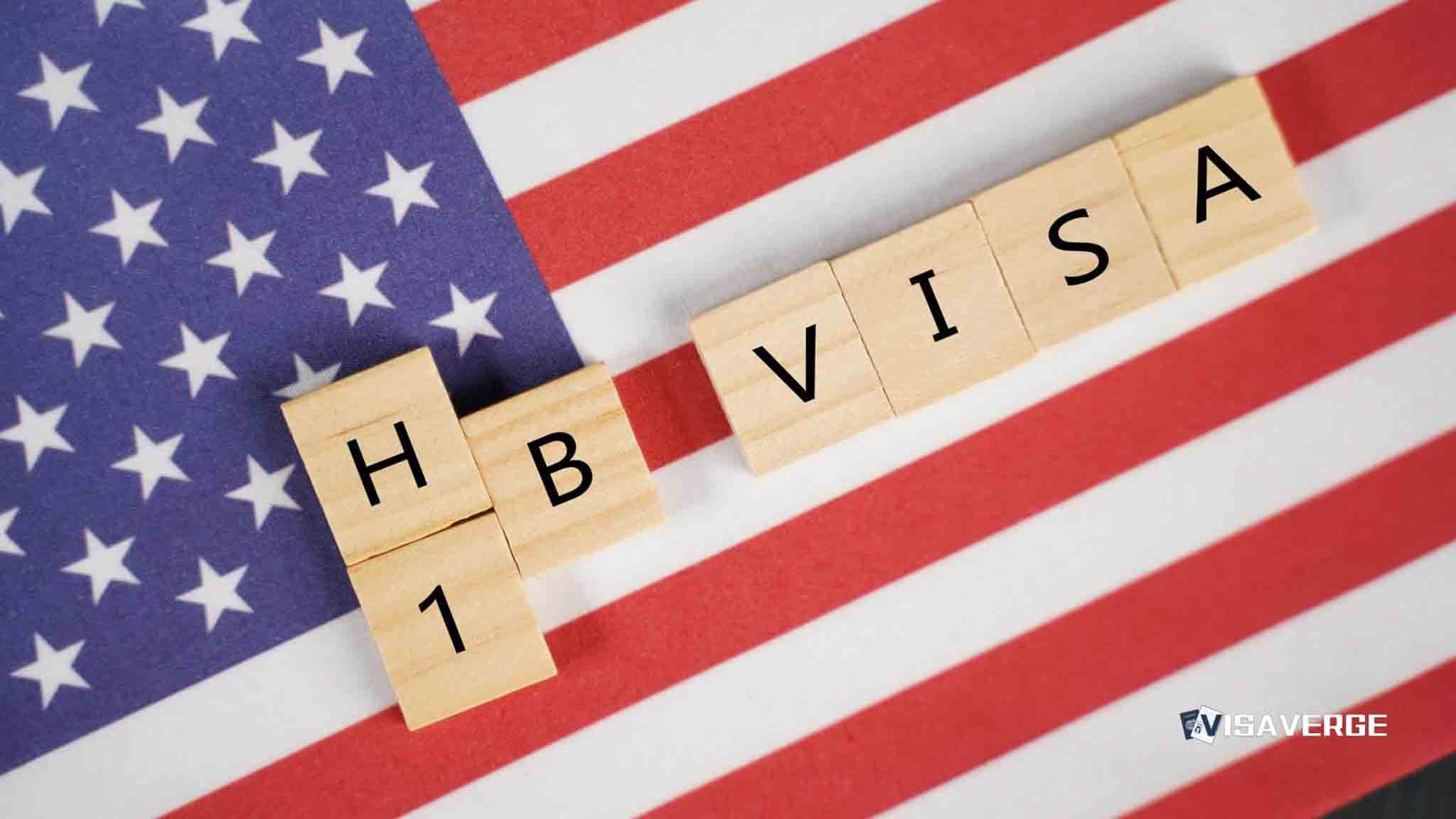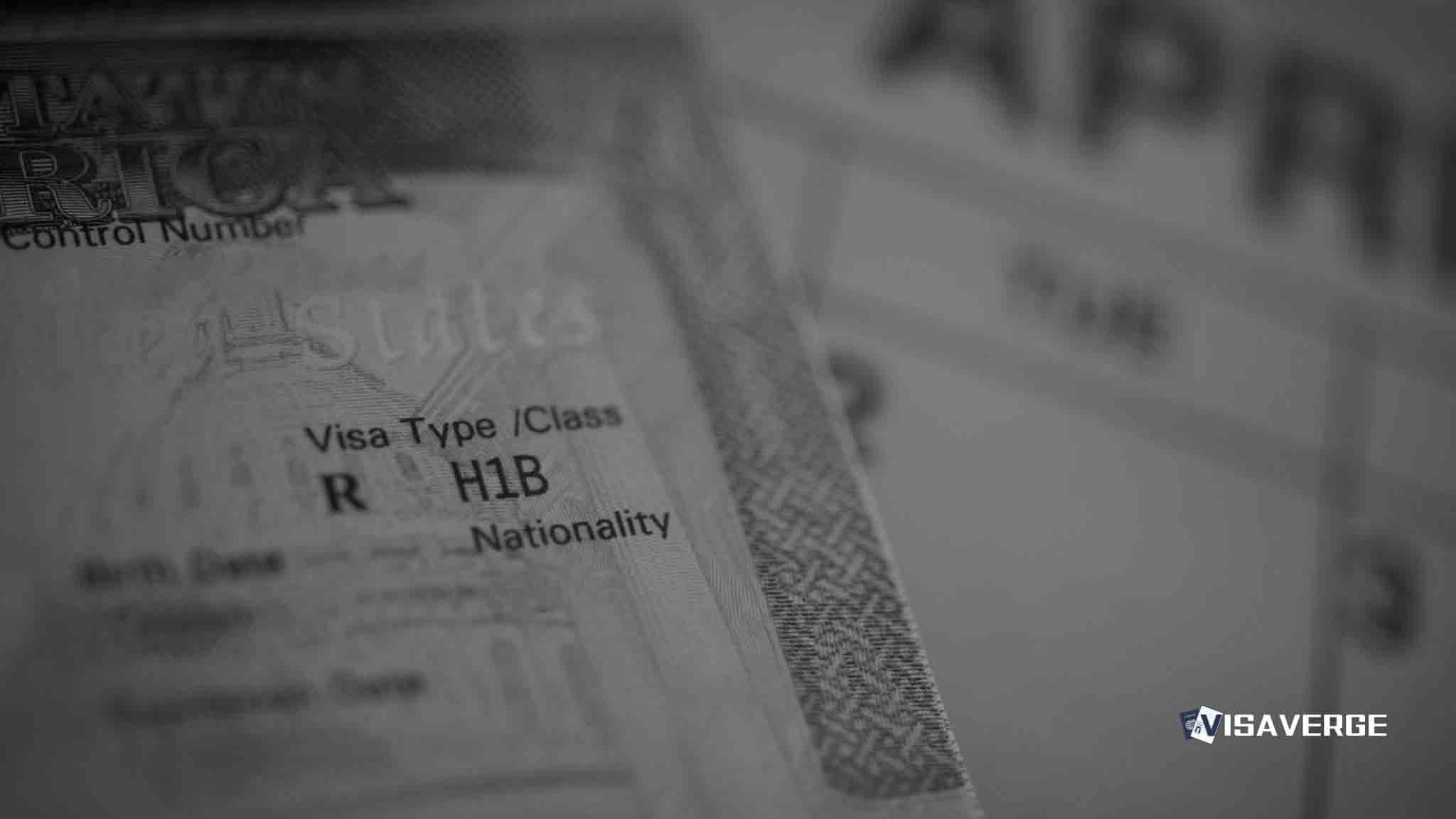Navigating the World of H-1B Visas
Are you a foreign professional aiming to work in the United States? If you specialize in an area that requires technical expertise in fields such as engineering, IT, or science, you may have heard of an H-1B visa. This type of visa is the key to opening doors to a wealth of career opportunities in the US, and understanding it can be the first step toward realizing your professional dreams.
Understanding the H-1B Visa
An H-1B visa is a nonimmigrant visa that allows US companies to employ workers in specialty occupations. These are roles that typically require a higher education degree, or its equivalent, in a specific field of expertise.
How the H-1B Visa Works
- The H-1B visa has an annual limit or cap, which currently stands at 85,000 visas per fiscal year. Of these, 20,000 are reserved for applicants holding a master’s or higher degree from a U.S. institution.
- Interested candidates can’t apply on their own—employer sponsorship is a must. This means a U.S. employer must offer you a job and apply on your behalf.
- The process kicks off on April 1 each year when the U.S. Citizenship and Immigration Services (USCIS) begins accepting applications. It’s crucial to act fast, as the cap is often reached within a few days.
Eligibility and Application Process
To qualify, you must have:
- A bachelor’s degree or higher in the specialty occupation from an accredited university.
- An employer willing to submit a labor condition application to the Department of Labor (DOL) approving the wage level for the job.

Given the high demand and limited number of visas, H-1B visas are distributed through a random selection process, often referred to as the “H-1B lottery.”
The Potential for a Brighter Future
“It’s a new dawn for many professionals who aspire to expand their horizons,” as immigration experts often remark. Getting an H-1B visa not only enables you to work in the U.S. but can also be a step towards gaining permanent residency, often called a Green Card.
Staying Informed and Prepared
As laws and policies are subject to change, remaining informed through official immigration sources is essential to understand the current landscape. Preparation is also key—make sure your resume and credentials are updated, and you’re ready to seize opportunities promptly.
In Conclusion
The H-1B visa serves as a bridge for specialized knowledge professionals around the world to connect with the dynamic U.S. job market. Being proactive, well-informed, and prepared will put you on the right track toward achieving your American professional aspirations. For more detailed information, visit the official USCIS H-1B page.
Remember, while the journey might seem complex, many have successfully navigated the H-1B visa route to enrich their careers and lives. Could you be next?
So, there you have it, my tech-savvy friend! We’ve covered the ins and outs of the H-1B visa with all its quirks and possibilities. But don’t stop here! Dive deeper into the world of visas and immigration at visaverge.com to arm yourself with the knowledge you’ll need to conquer the U.S. job market. Trust me, you’ll be one step closer to living the American dream! Cheers!
FAQ’s to know:
FAQ 1: What is an H-1B visa and how does it work?
The H-1B visa is a nonimmigrant visa that allows US companies to hire foreign workers in specialty occupations. These occupations typically require a higher education degree in a specific field. The visa has an annual cap of 85,000, with 20,000 reserved for applicants holding a master’s degree or higher from a U.S. institution. Interested candidates must have a U.S. employer willing to sponsor their application, and the application process opens on April 1 each year. Eligibility is determined by having a bachelor’s degree or higher in the specialty occupation from an accredited university, and an employer willing to submit a labor condition application to the Department of Labor.
FAQ 2: Can the H-1B visa lead to permanent residency?
Yes, obtaining an H-1B visa can be a step towards gaining permanent residency, also known as a Green Card, in the United States. While the H-1B visa itself is a nonimmigrant visa, it provides an opportunity for foreign professionals to work in the U.S. and gain valuable experience. This experience can enhance their chances of being sponsored by an employer for a Green Card, which would grant them permanent residency and the ability to live and work in the U.S. permanently.
FAQ 3: How can I increase my chances of obtaining an H-1B visa?
To increase your chances of obtaining an H-1B visa, it is important to stay informed and prepared. Familiarize yourself with the current immigration laws and policies through official immigration sources such as the U.S. Citizenship and Immigration Services (USCIS) website. Keep your resume and credentials updated and be ready to seize opportunities promptly when the application process opens on April 1. Additionally, securing employment with a U.S. company that is willing to sponsor your H-1B visa application is crucial. Being proactive, well-informed, and prepared will put you on the right track toward realizing your American professional aspirations.
What did you learn? Answer below to know:
- True or False: The H-1B visa is specifically designed for workers in specialty occupations requiring a higher education degree.
- What is the annual cap for H-1B visas? a) 50,000 b) 85,000 c) 100,000 d) No cap
- What is the “H-1B lottery”? a) A process where employers randomly select H-1B visa candidates b) A selection process for distributing H-1B visas when the demand exceeds the annual cap c) A program providing scholarships for H-1B visa applicants d) A lottery exclusively for H-1B visa holders
Learn Today: Key Terms Explained
Glossary or Definitions
- H-1B Visa: A nonimmigrant visa that allows US companies to employ foreign workers in specialty occupations. These occupations typically require a higher education degree in a specific field of expertise.
-
Specialty Occupation: A job role that requires a higher education degree or its equivalent in a specific field of expertise, such as engineering, IT, or science.
-
Annual Cap: The annual limit on the number of H-1B visas issued by the United States government. Currently set at 85,000 visas per fiscal year, with 20,000 visas reserved for applicants with a master’s degree or higher from a U.S. institution.
-
Employer Sponsorship: The requirement for an H-1B visa applicant to have a U.S. employer who offers them a job and applies for the visa on their behalf.
-
U.S. Citizenship and Immigration Services (USCIS): The government agency responsible for processing immigration benefits and applications, including H-1B visa applications.
-
Labor Condition Application (LCA): An application submitted by the employer to the Department of Labor (DOL) to ensure that the wage level for the H-1B visa job meets prevailing wage requirements.
-
Department of Labor (DOL): A federal agency that sets and enforces regulations regarding labor, including approving wage levels for H-1B visa jobs through the labor condition application process.
-
H-1B Lottery: The random selection process used to distribute H-1B visas when the demand for visas exceeds the annual cap. This process is used to determine which applicants will be eligible to proceed with their visa applications.
-
Green Card: A commonly used term for a United States Permanent Resident Card. Obtaining a Green Card grants an individual permanent residency status and the ability to live and work permanently in the United States.
-
Nonimmigrant Visa: A temporary visa granted to individuals who plan to stay in the United States for a specific, temporary purpose, such as work or study.
-
Immigrant Visa: A visa granted to individuals who intend to live permanently in the United States.
-
Accredited University: A university or educational institution that has been officially recognized and approved by a accrediting organization or state educational authorities.
Please note that the definitions provided above are based on the content provided. The terminology and definitions used may vary depending on the country and context of immigration.








